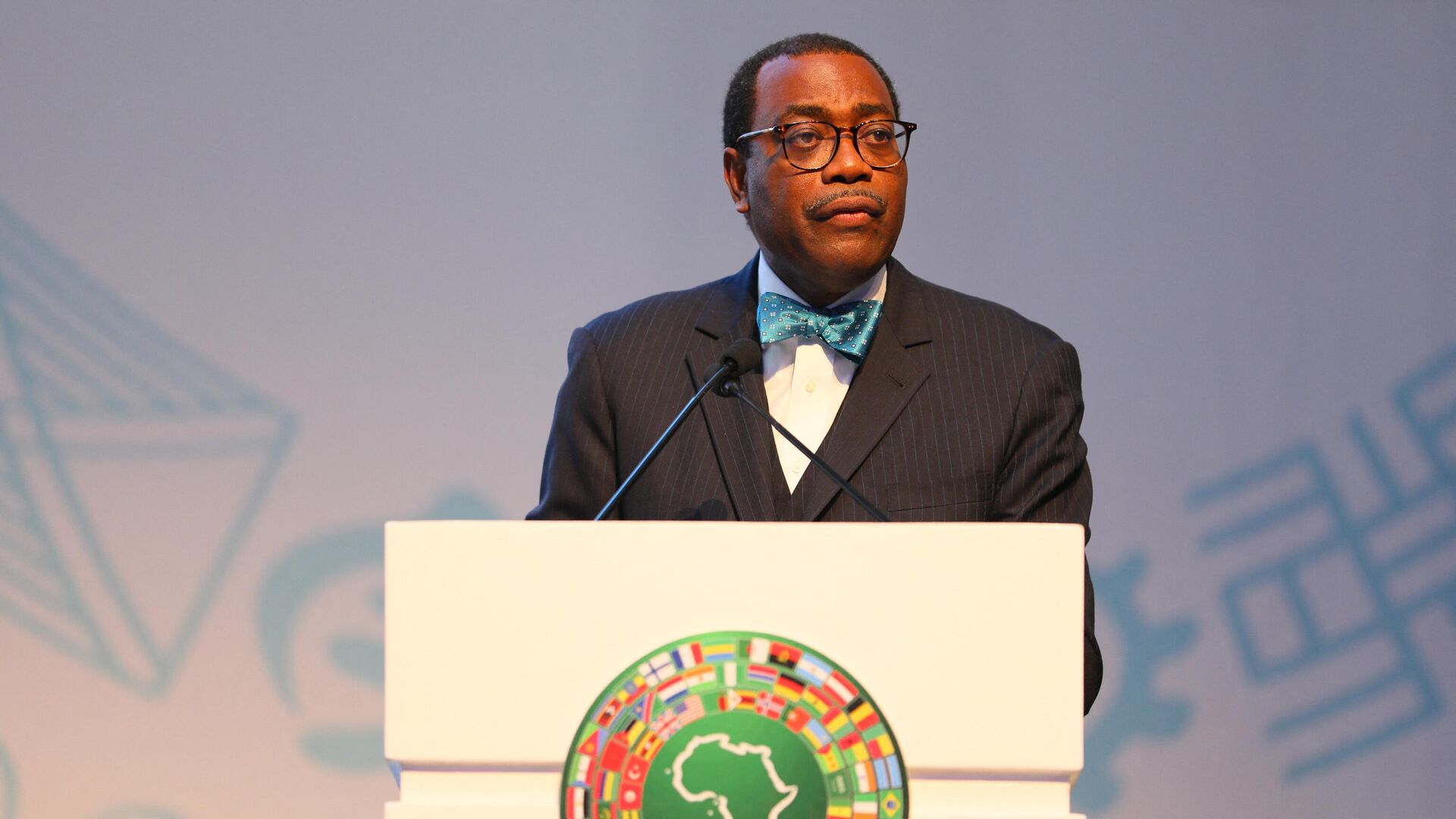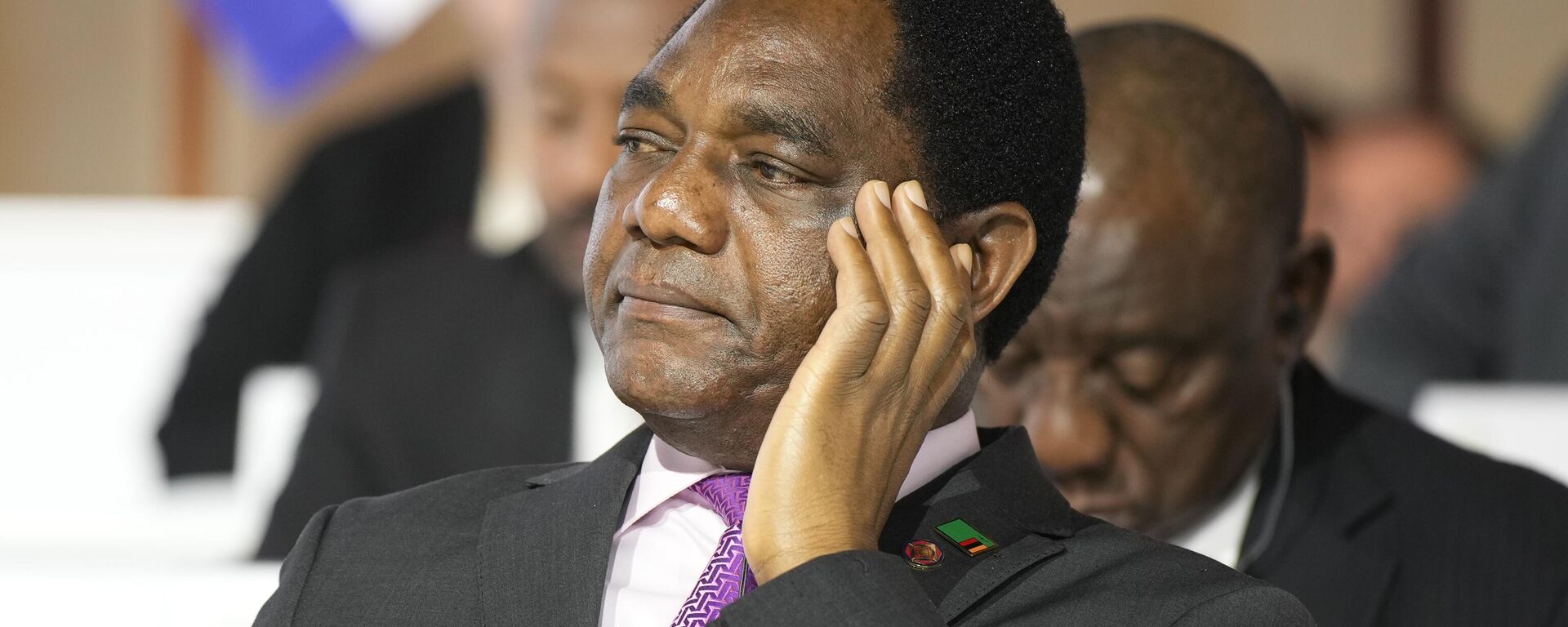https://en.sputniknews.africa/20230623/african-nations-to-launch-regional-stability-mechanism-as-global-finance-fails-1060106244.html
African Nations to Launch Regional Stability Mechanism As Global Finance Fails
African Nations to Launch Regional Stability Mechanism As Global Finance Fails
Sputnik Africa
African nations have repeatedly pointed out injustices in the world's financial system, calling for far-reaching reforms aimed at altering the very structure... 23.06.2023, Sputnik Africa
2023-06-23T15:13+0200
2023-06-23T15:13+0200
2023-08-03T10:44+0200
sub-saharan africa
african development bank (afdb)
finance
debt
debt restructuring
economic growth
economy
https://cdn1.img.sputniknews.africa/img/07e7/06/17/1060108375_0:0:3071:1728_1920x0_80_0_0_eb9017ef834aaa489a90b66f12a59c4d.jpg
The African Union (AU) and African Development Bank are working on the creation of an African Financial Stability Mechanism that will allow the continent to mitigate the effects of various external shocks and provide assistance that the global financial architecture has failed to secure, the bank's President Akinwumi Adesina has said.According to the Nigerian economist, Africa needs to step up regional efforts and establish a continental financial framework to "tackle systemic risk", such as the effects of climate change, volatility of commodity prices and health crises.In his article released on Thursday, the bank's chief commented on the recent gathering of 40 leaders, including those from Africa, noting that the summit for a New Global Financial Pact, which is being held in Paris on 22 to 23 June, seeks to get the 2030 Sustainable Development Goals (SDG) back on course. However, he highlighted, to make the SDG feasible the international community should embark on re-engineering the global financial system to ensure it is more responsive to the needs of low-income countries.He recalled that even before the pandemic there had been a significant annual SDG financing gap of $2.5 trillion for developing states. He emphasized that available global financing is limited and insufficient to tackle global challenges from food insecurity to "devastating" climate change to the growing debt burden of developing nations. Adesina, in particular, pointed out that the global financial architecture should tackle global debt crises. He explained that the process of debt resolution in Africa has often been protracted, causing further deterioration of economic and social conditions in debt-laden countries. In this regard, the president underlined, the international community has to advance transparency and global coordination among creditors.The economist highlighted that "global contingency financing has to start working for Africa", recalling that out of $650 billion provided by the IMF to help countries to deal with "an ever-shrinking fiscal space" African states received only 5 percent. Ethiopian Prime Minister Abiy Ahmed, who also attended the summit, echoed Adesina's remarks, saying that African nations are facing an "unprecedented funding squeeze which have aggravated the vulnerabilities". The Ethiopian leader called for a robust and predictable financial safety net that serves for the interests of all. According to United Nations Secretary-General Antonio Guterres, the international financial system has failed to provide a global safety net for developing nations. He called the present financial architecture dysfunctional, outdated and unfair.
https://en.sputniknews.africa/20230623/journey-towards-recovery-zambia-secures-debt-agreement-under-g20-framework-1060100932.html
Sputnik Africa
feedback@sputniknews.com
+74956456601
MIA „Rossiya Segodnya“
2023
News
en_EN
Sputnik Africa
feedback@sputniknews.com
+74956456601
MIA „Rossiya Segodnya“
Sputnik Africa
feedback@sputniknews.com
+74956456601
MIA „Rossiya Segodnya“
african development bank (afdb), finance, debt, debt restructuring, economic growth, economy
african development bank (afdb), finance, debt, debt restructuring, economic growth, economy
African Nations to Launch Regional Stability Mechanism As Global Finance Fails
15:13 23.06.2023 (Updated: 10:44 03.08.2023) African nations have repeatedly pointed out injustices in the world's financial system, calling for far-reaching reforms aimed at altering the very structure of international finance to make it beneficial for developing states, and transform it to serve their interests.
The African Union (AU) and African Development Bank are working on the creation of an African Financial Stability Mechanism that will allow the continent to mitigate the effects of various external shocks and provide assistance that the global financial architecture has failed to secure, the bank's President Akinwumi Adesina has said.
According to the Nigerian economist, Africa needs to step up regional efforts and establish a continental financial framework to "tackle systemic risk", such as the effects of climate change,
volatility of commodity prices and health crises.
"Africa is the only region of the world that does not have liquidity buffers to protect it against shocks. The African Development Bank and the African Union are working together to establish an African Financial Stability Mechanism to allow countries to mutualize our funds and help avoid the domino effects that come from global pandemics and other external shocks," African Development Bank President, Adesina, said.
In his article released on Thursday, the bank's chief commented on the recent gathering of 40 leaders, including those from Africa, noting that the summit for a New Global Financial Pact, which is being held in Paris on 22 to 23 June, seeks to get the 2030 Sustainable Development Goals (SDG) back on course.
However, he highlighted, to make the SDG feasible the international community should embark on re-engineering the global financial system to ensure it is more responsive to the needs of low-income countries.
"The global financial architecture is failing Africa and developing countries," he stressed. "Ultimately, what leaders gathered in Paris must recognize is that a re-engineered global financial architecture - one that is more responsive, inclusive and accountable - is what’s needed to support the accelerated development of the world."
He recalled that even before the pandemic there had been a significant annual SDG
financing gap of $2.5 trillion for developing states. He emphasized that available global financing is limited and insufficient to tackle global challenges from food insecurity to "devastating" climate change to the growing debt burden of developing nations.
Adesina, in particular, pointed out that the global financial architecture should tackle global
debt crises. He explained that the process of debt resolution in Africa has often been protracted, causing further deterioration of economic and social conditions in debt-laden countries. In this regard, the president underlined, the international community has to advance transparency and global coordination among creditors.
The economist highlighted that "global contingency financing has to start working for Africa", recalling that out of $650 billion provided by the IMF to help countries to deal with "an ever-shrinking fiscal space" African states received only 5 percent.
Ethiopian Prime Minister Abiy Ahmed, who also attended the summit, echoed Adesina's remarks, saying that African nations are facing an "unprecedented funding squeeze which have aggravated the vulnerabilities". The Ethiopian leader called for a robust and predictable financial safety net that serves for the interests of all.
According to United Nations Secretary-General Antonio Guterres, the international financial system has failed to provide a global safety net for developing nations. He called the present financial architecture dysfunctional, outdated and unfair.


